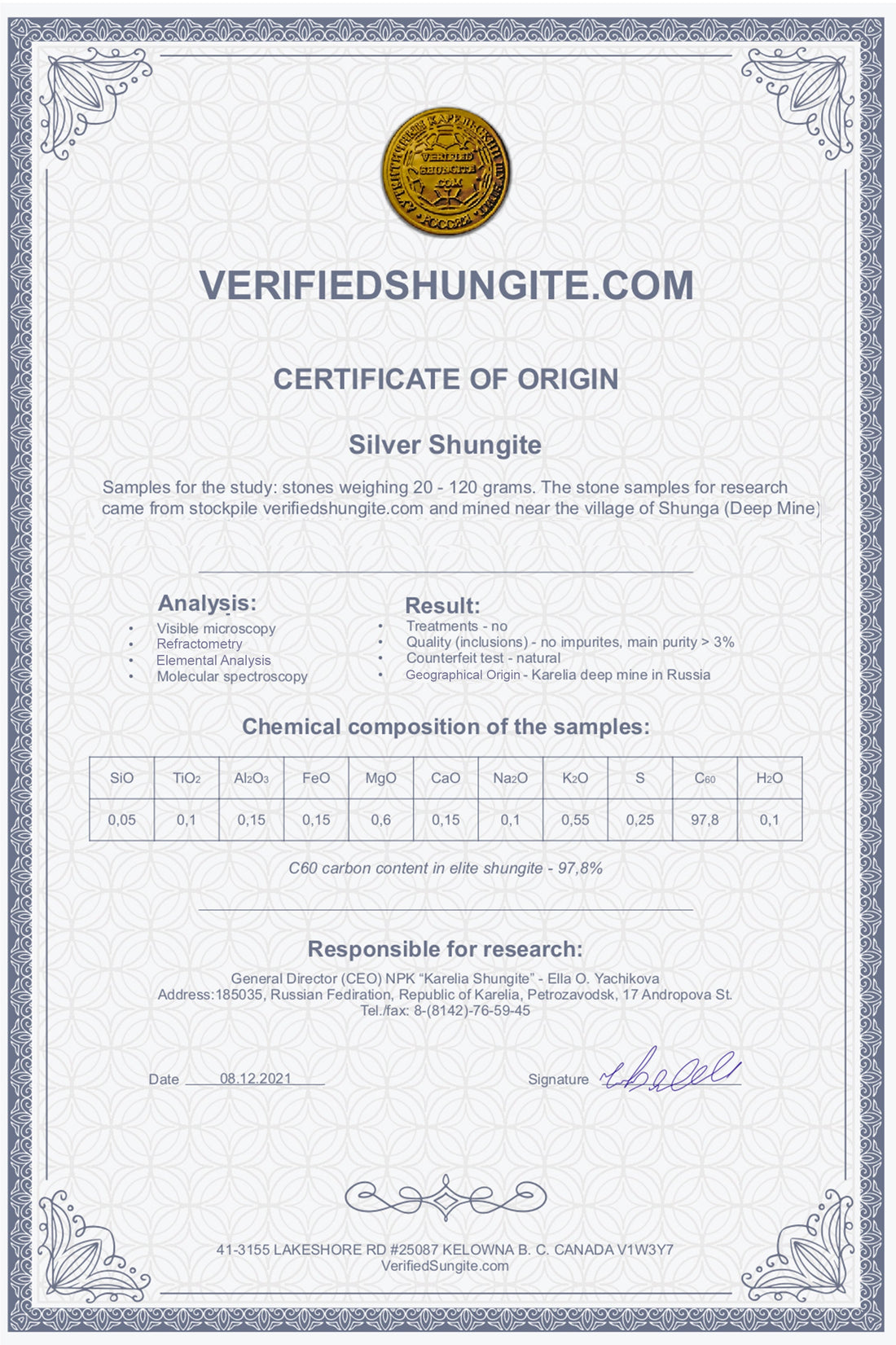
Fake Shungite Alert: How to Identify Counterfeit Shungite
Share
Fake Shungite Alert: How to Identify Counterfeit Shungite
Much of the “Shungite” sold online is fake or mislabeled. Here’s a straightforward way to verify raw stones: conductivity testing, visual inspection, and independent lab certificates. An optional water test is also included if you’d like another datapoint.
*** UPDATE *** A material called “Jet” that looks similar to Shungite has appeared on marketplaces. Read more here: Fake vendor warning.
Multimeter Conductivity Test
Authentic Shungite conducts electricity with essentially zero resistance. Counterfeits typically fail this test - the test should show resistance start at 1, then rapidly go to 0 and stay there. Fake rocks "bounce around" and do not settle on 0. Each raw stone is tested before manufacturing, and results are recorded to confirm authenticity before we ever craft jewelry from it.
Visual Tells
Hematite
Hematite can appear similar at a glance, but breaks differently and does not pass conductivity checks. Some sellers mix it with authentic stones, creating inconsistent batches.

Marketplace Example
Painted fittings or coatings = painted rocks. A common fake indicator.

Certificates for Raw and Type 2 Stones
Our raw Shungite stones are independently lab-certified to confirm their unique mineral composition and fullerene content. Each stone batch is documented, and certification is attached to ensure customers receive authentic material.
From these certified raw stones, our jewelry is hand-assembled in our Santa Monica studio. Every pendant, bracelet, or plate is individually checked for authenticity and finish quality before shipping.
ORP Water Test
As an additional datapoint, you can measure how stones influence water with an ORP (Oxidation-Reduction Potential) meter. Authentic Shungite typically reduces ORP readings compared to untreated water.






